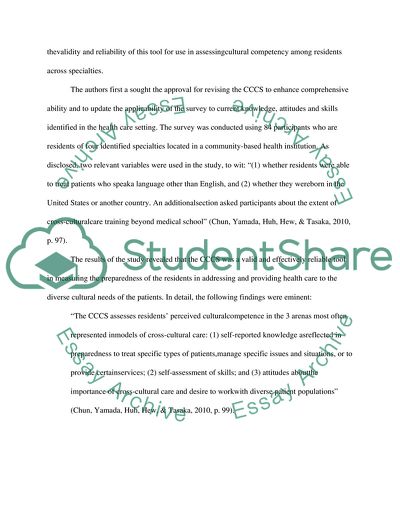The Cross-Cultural Care Survey to Assess Cultural Competency Article - 5. Retrieved from https://studentshare.org/social-science/1590134-article-review
The Cross-Cultural Care Survey to Assess Cultural Competency Article - 5. https://studentshare.org/social-science/1590134-article-review.


